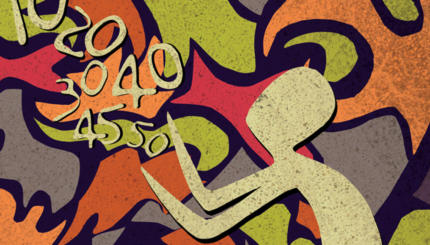Being a woman on Simchat is hard for me, but not for the reasons you might think.
Maybe I am bothered by the imbalance, when the men have Torah scrolls but the women don’t.
Maybe I am bothered by the fact that each man will get an aliyah but no women will.
Maybe I am bothered that in some synagogues, even boys under age receive aliyot on Simchat Torah – but I, as an adult woman, still do not.
Maybe, but that’s not what I want to talk about.
The big challenge I face on Simchat Torah isn’t on the men’s side. It’s not the centuries of gender disparity in who does and doesn’t hold a Torah scroll, or get called to the Torah. It’s not the rabbinic system that might move cautiously with regard to societal changes.
It’s not the men who frustrate me. It’s the women.
If I feel excluded from the celebrations, it is due to the choices of my fellow women. I have a deep love for Torah and a joy that moves me to dance, and I won’t be held back by details like space or chairs in the way or the question of whether I’ll be holding a child or a Torah or both or neither. But I am held back when I have no one to dance with. When other women won’t join me, I wonder if it’s because – if I can be permitted to generalize for a moment – they either care too much, or they don’t care enough.
The women who care too much are the ones who won’t participate, on principle, unless things are exactly the same on the women’s side as on the men’s side. Read: with Torah scrolls. I get it, I do. But I’m disappointed when a woman boycotts the celebrations because she doesn’t get to hold a Torah. I’d prefer that she still attend and dance with us, even if the conditions may not be ideal. We can still remain true to one ideal, the one that deserves our primary focus on this holiday: the Torah, and our relationship to it. I believe in Torah, and I believe in my portion in Torah. I learn it; I teach it; I love it; I live it. And I dance for it, and I don’t see why I should have to wait for a scroll to do that, and I would love if more women joined me in that sentiment.
And then there is the other side: apathy. I can reach for your hand, but I can’t make you come. I can feel the joy myself, but I can’t impose it on you. I can ignore the aesthetics; if the chairs are in the way, or the women’s section feels too small, I can work around all that. But I can’t fight the women who are stuck in their ways and their conversations, who are so resigned to this misconception of Simchat Torah as a men’s holiday that the extent of their celebration might be to arrange or attend shiurim for women during the dancing.
My own community holds a wonderful program of divrei Torah, by and for women, on Simchat Torah morning during hakafot. I appreciate the sentiment behind it: women aren’t dancing, so we should celebrate Torah in some other way. And it’s always beautiful, and I have been honored to be among the speakers, and I always attend when I’m in town. But as wonderful as the program is, I would rather see it held any time other than during hakafot. On Simchat Torah, I want to dance.
Thinking about these issues lately, I find myself with a song stuck in my head that won’t leave me alone. It’s by Walk the Moon, and it goes like this: Shut up and dance with me! Or, let’s be more polite: Get up and dance with me!
Learn the halakhot about women and Torah scrolls, and about women and aliyot, and argue with your synagogue leadership as you find necessary. But in the meantime, remember that your – my, our – part in Torah transcends all that. Remember that our part in Torah is worth delaying that chitchat and getting up and moving a little, even if your mother didn’t and even if you hope that when your daughter is grown she will be dancing with a Torah scroll as a matter of course. Remember that when you choose to sit it out, you are excluding yourself and helping perpetuate the notion that this holiday belongs to the men.
In the meantime, on Simchat Torah, please, just get up and dance with me.


